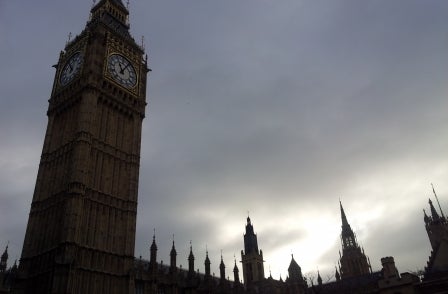
A group of the leading news agencies and image archives have mounted a legal challenge against Government moves to shake up the law on copyright.
They yesterday delivered a Letter Before Claim to Business Secretary Vince Cable asking for a rethink to proposals which it says will "weaken" copyright law and which they are concerned could be enacted via "secondary legislation", meaning they will not have the full scrutiny of Parliament.
The changes would include a reduction in the length of copyright terms and provisions which mean some rights holders could see their work exploited by others unless they opt out of statutory schemes – both of which the consortium opposes.
The proposals would be implemented through the Enterprise and Regulatory Reform Bill which is currently going through the House Of Lords.
Organisations in the consortium include the Associated Press, Reuters, the Press Association, Getty Images and British Pathe.
The consortium has written to Cable as a first step in the process of initiating a judicial review challenging the planned legislation, and the way it is being introduced.
A spokeswoman at the Department for Business, Innovation and Skills said: "We are taking steps following the Hargreaves Review of Intellectual Property to deliver a modern, robust and flexible copyright framework for all.
"Our measures in the Enterprise and Regulatory Reform Bill aim to make copyright licensing more efficient while also removing the unnecessary barriers to the legitimate use of works, while preserving the interests of rights holders.
"In addition, the Government aims to find a balance between the interests of rights holders, creators, consumers and users by introducing, through the scrutiny of Parliament, changes to copyright exceptions and related rights."
In a statement the consortium said: “The consortium believes that the economic growth arguments originally put forward to justify the Government's proposals are without basis and has challenged the Government's plans to introduce its proposed changes through so-called `Henry VIII clauses` - secondary legislation which is not subject to the full scrutiny of Parliament, which includes visibility to the public…
"The consortium believes that any changes to the UK's copyright framework should be industry-led and fully supports the creation of the Copyright Hub – an initiative led by businesses and stakeholders to create a digital registry of copyrighted works.”
Paul Ellis of campaign group Stop 43 told the British Journal of Photography: "The technology, academic and cultural heritage sectors want to be able to use other people's copyright property without having to ask or pay for it, and view copyright law as an obstacle.
"Under their intense propaganda and lobbying onslaught several governments have fallen for this line and are trying to introduce laws that weaken copyright, such as the Enterprise and Regulatory Reform Bill now going through Parliament. All these Governments are signatories of the Berne Convention and must provide clear minimum levels of copyright protection, not least to citizens of other signatory countries, and therein lies the problem: these legislative attempts to weaken copyright breach our international treaty obligations…
"Their last try was three years ago, with Clause 43 of the Digital Economy Bill, and these lobbying-driven legislative attempts to confiscate our property will no doubt continue until a highly placed court rules them illegal under international law. That, we hope, is what this Judicial Review will achieve."
Email pged@pressgazette.co.uk to point out mistakes, provide story tips or send in a letter for publication on our "Letters Page" blog
